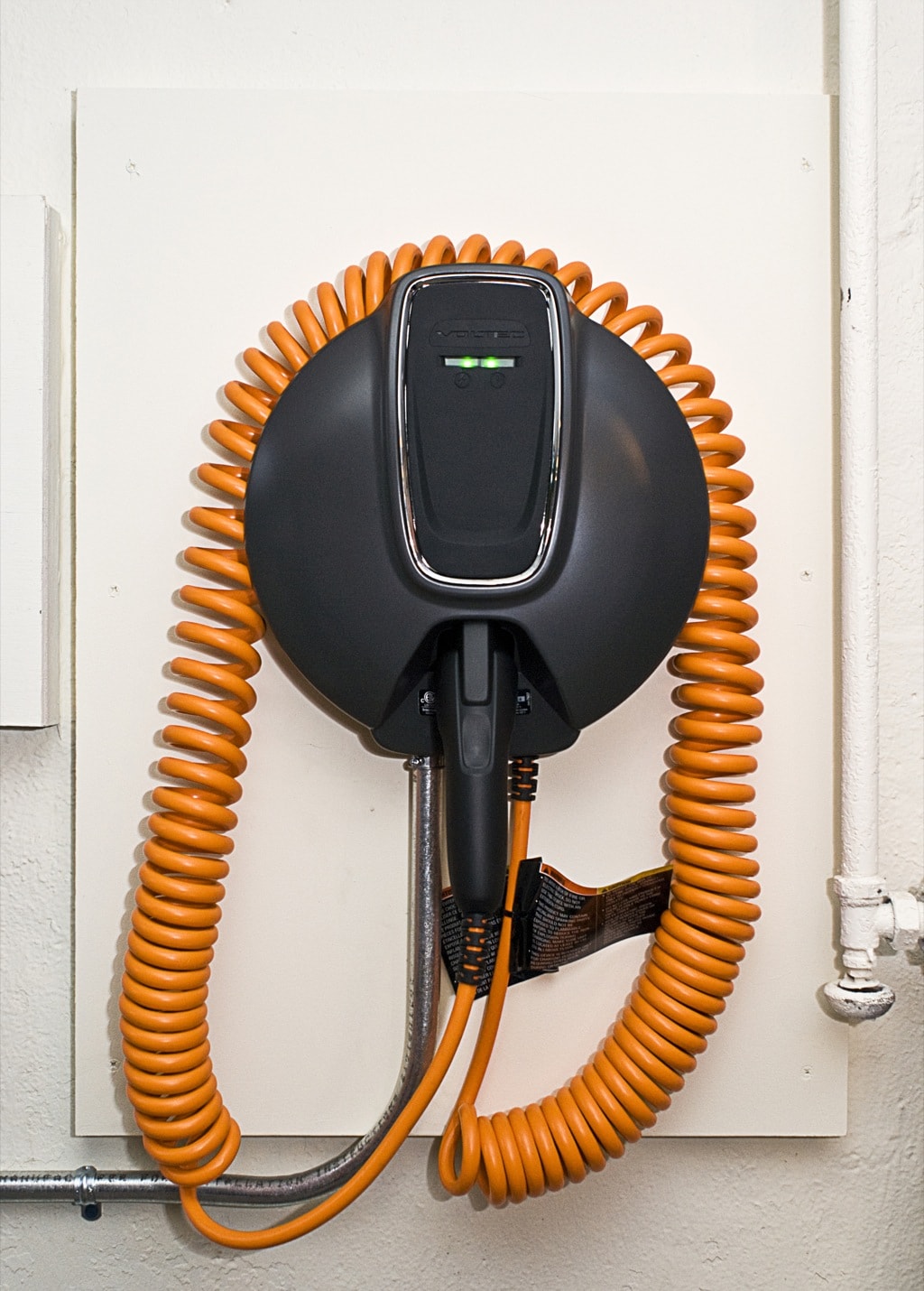Electric vehicles seem like a reasonable approach on the environmental problem everybody's been fussing about lately. Yet production and distribution of all-electric cars is slowed drastically by the lack of infrastructure and battery technology. With the latter already existing in an acceptable form, the only issue to be tackled by automakers now is a practical network of charging points.
Deciding how and where to set up a network is vital to the resolution of the EV's crisis, so Future Transport Systems of UK designed the layout of electric vehicle charging infrastructure based on criteria provided by regional organizations, vehicle manufacturers, infrastructure suppliers and distribution network operators. Several scenarios are simulated to help understand how usage might develop and affect the electrical distribution network.
In Japan, a business association including Toyota, Mitsubishi, Nissan, Fuji Heavy Industries and the Tokyo Electric Power Company is working on standardizing EV charging units so that any vehicle can use them. This CHAdeMO (Charge de Move) coalition is struggling to attract businesses and governments in its plan to standardize EV outlets and voltages.
“With standardized charging, EVs have a much better chance of customer acceptance and success,” a CHAdeMO note said.
Ivan Hodac, secretary-general of the European auto-makers association ACEA, said that long recharging times and the lack of standardization meant e-mobility was not an immediate solution. He also said that electric vehicles make no sense if they aren't powered by low carbon electricity.
Using green power is clearly the target for automakers and governments alike. US-based Eaton Corporation collaborates with Tennessee Valley Authority and the Electric Power Research Institute (EPRI) to develop a solar-assisted electric vehicle charging station at EPRI’s research laboratory in Knoxville, Tennessee.
A British company called Elektromotive makes the Elektrobay, a charging station for street or multi-story car parks. More than 100 of these charging stations have already been installed in London alone, with 130 more being set up in cities and shopping centers throughout the UK. They have also been exported to Belgium, Luxembourg, Sweden, Holland, Germany, Ireland, Iceland and Saudi Arabia.
Although fast charging will be popular with EV drivers, electricity companies are concerned existing grids may not be able to cope with the demand. Utilities such as the San Francisco-based Pacific Gas and Electric Company (PG&E) expect most buyers will want a 240-volt charger that can charge a reasonably-sized EV at home in two to three hours. That means that the charger drains four times as much energy than a standard 120-volt charger. Furthermore, drivers will not necessarily charge vehicles overnight using otherwise idle generating plants and power grids, as was originally thought.
“You’ve got to manage the runway. And from our perspective, we think the runway is getting short relative to the launch of these vehicles,” said Saul Zambrano, director for clean air and transportation at PG&E, referring to the absence of a power system that could support EVs.
Deciding how and where to set up a network is vital to the resolution of the EV's crisis, so Future Transport Systems of UK designed the layout of electric vehicle charging infrastructure based on criteria provided by regional organizations, vehicle manufacturers, infrastructure suppliers and distribution network operators. Several scenarios are simulated to help understand how usage might develop and affect the electrical distribution network.
In Japan, a business association including Toyota, Mitsubishi, Nissan, Fuji Heavy Industries and the Tokyo Electric Power Company is working on standardizing EV charging units so that any vehicle can use them. This CHAdeMO (Charge de Move) coalition is struggling to attract businesses and governments in its plan to standardize EV outlets and voltages.
“With standardized charging, EVs have a much better chance of customer acceptance and success,” a CHAdeMO note said.
Ivan Hodac, secretary-general of the European auto-makers association ACEA, said that long recharging times and the lack of standardization meant e-mobility was not an immediate solution. He also said that electric vehicles make no sense if they aren't powered by low carbon electricity.
Using green power is clearly the target for automakers and governments alike. US-based Eaton Corporation collaborates with Tennessee Valley Authority and the Electric Power Research Institute (EPRI) to develop a solar-assisted electric vehicle charging station at EPRI’s research laboratory in Knoxville, Tennessee.
A British company called Elektromotive makes the Elektrobay, a charging station for street or multi-story car parks. More than 100 of these charging stations have already been installed in London alone, with 130 more being set up in cities and shopping centers throughout the UK. They have also been exported to Belgium, Luxembourg, Sweden, Holland, Germany, Ireland, Iceland and Saudi Arabia.
Although fast charging will be popular with EV drivers, electricity companies are concerned existing grids may not be able to cope with the demand. Utilities such as the San Francisco-based Pacific Gas and Electric Company (PG&E) expect most buyers will want a 240-volt charger that can charge a reasonably-sized EV at home in two to three hours. That means that the charger drains four times as much energy than a standard 120-volt charger. Furthermore, drivers will not necessarily charge vehicles overnight using otherwise idle generating plants and power grids, as was originally thought.
“You’ve got to manage the runway. And from our perspective, we think the runway is getting short relative to the launch of these vehicles,” said Saul Zambrano, director for clean air and transportation at PG&E, referring to the absence of a power system that could support EVs.
